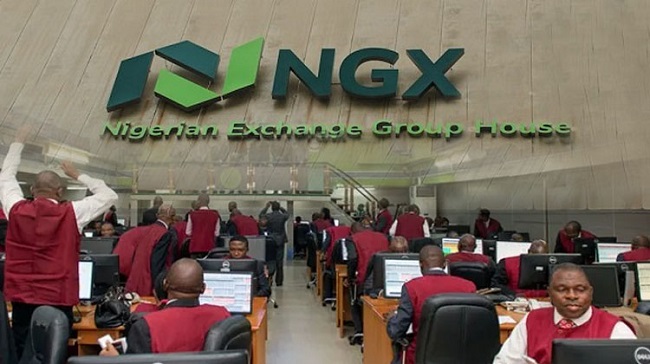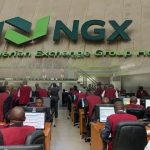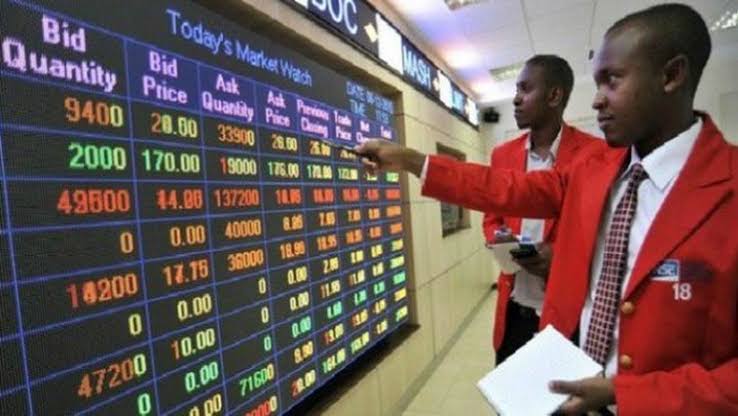Foreign portfolio investment in Nigeria’s equities market experienced a steep decline of 92.39% in April 2025, with inflows falling to N26.64 billion from N349.97 billion recorded in March. The drop is largely attributed to the absence of block trades that had previously boosted activity, coupled with heightened global uncertainty and cautious sentiment among international investors.
According to figures from the Nigerian Exchange (NGX), total foreign transactions plummeted by 90.99% to N63.07 billion in April, down from N699.89 billion the previous month. This comprised N26.64 billion in inflows and N36.43 billion in outflows, resulting in a net capital outflow of N9.79 billion for the month.
The shift marks a sharp reversal from March, when foreign transactions accounted for 62.74% of total market activity. In April, that share fell drastically to just 13.08%, reflecting weakening investor confidence amid ongoing geopolitical challenges.
Total transaction value on the NGX fell by 56.79%, from N1.115 trillion in March to N482.04 billion in April. Still, this figure is 39.22% higher than April 2024’s value of N346.23 billion, indicating some resilience on a year-on-year basis. Year-to-date, the market has recorded N2.714 trillion in total trades, a 43.3% increase compared to N1.894 trillion during the same period in 2024. This improvement is driven by strong domestic participation earlier in the year, though the April downturn exposes continued fragility.
In April, domestic investors dominated market activity, accounting for N418.97 billion or 86.92% of total trade, up slightly from N415.62 billion in March. Within this group, institutional investors showed stronger involvement, increasing activity by 8.77% to N237.66 billion. Retail investors, however, reduced their participation by 8.02% to N181.31 billion, indicating growing caution among individuals. Institutional trades outpaced retail activity by 14%, continuing a trend observed throughout 2025.
So far this year, institutional investors have traded N976.66 billion, while retail trades total N860.29 billion. Despite the surge in foreign activity in March, the overall foreign position remains negative, with inflows of N420.32 billion and outflows of N456.80 billion between January and April, resulting in a net outflow of N36.48 billion.
Foreign investors accounted for 32.32% of total market activity year-to-date, compared to just 13.77% in the same period in 2024. While this marks an improvement, its sustainability remains uncertain in light of ongoing global volatility.
Long-term data indicates a market shaped by domestic dominance. From 2007 to 2024, domestic transactions rose by 33.15% to N4.735 trillion, while foreign transactions grew by 38.31% to N852 billion. In 2025, domestic trades stand at N1.837 trillion compared to N877.12 billion in foreign trades, underscoring the continued reliance on domestic institutional capital.
April’s global market turbulence was further intensified by U.S. President Donald Trump’s announcement of broad tariffs, including a 14% levy on Nigerian exports. The policy rattled global trade flows and injected fresh uncertainty into Nigeria’s export-driven economy, affecting sectors beyond oil. In response, the Central Bank of Nigeria (CBN) injected $200 million into the forex market to stabilize the naira.
Nigeria’s economic team also met to assess the broader impact of the tariffs and develop strategies to cushion the blow. President Trump’s tariff framework suspended country-specific reciprocal tariffs—except for China—and introduced a 10% flat import duty for most countries until July 8, 2025. The measure is aimed at encouraging negotiations to ease trade imbalances.
These developments underscore how deeply global policy decisions affect local economies. For Nigeria, maintaining foreign investor confidence will depend on addressing macroeconomic weaknesses, improving foreign exchange stability, and accelerating structural reforms. Until then, domestic institutions will remain the cornerstone of the country’s equity market.










